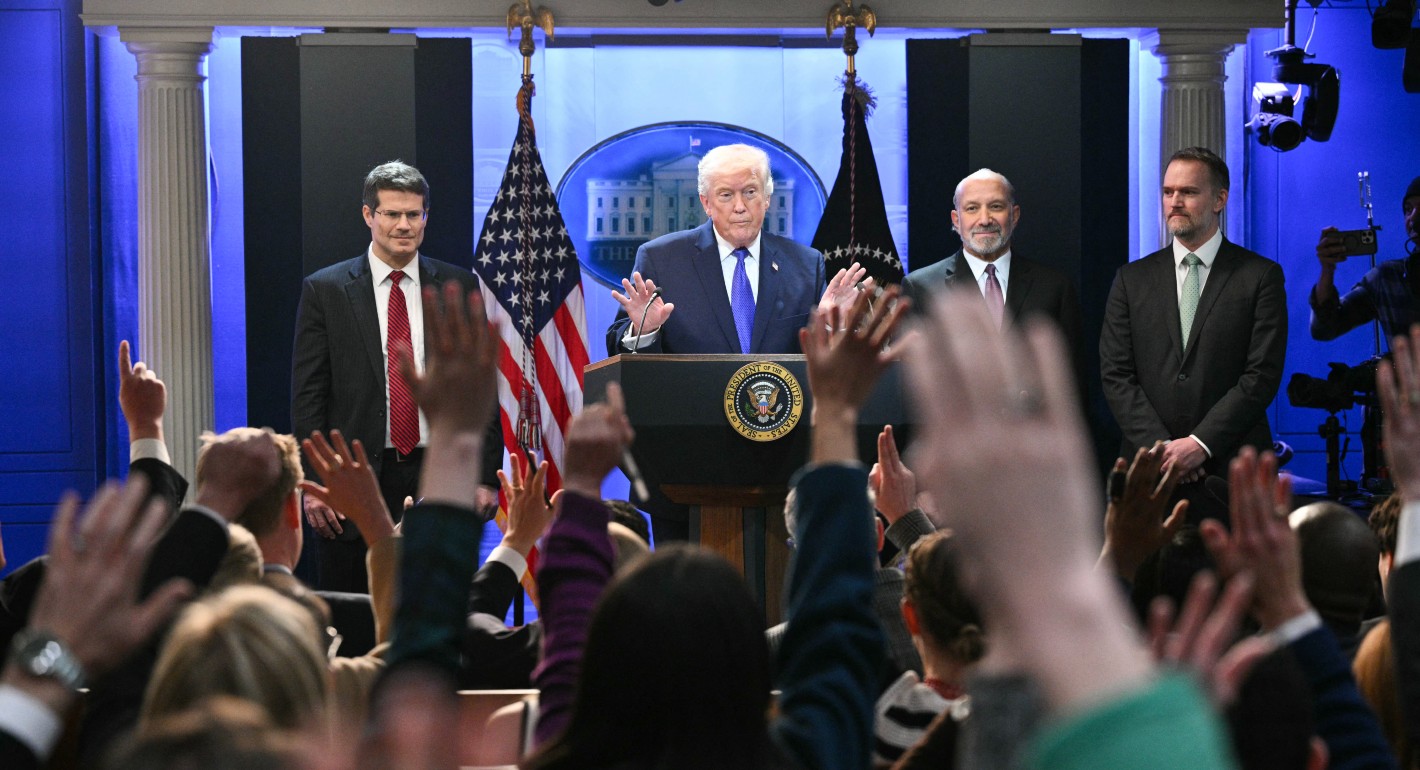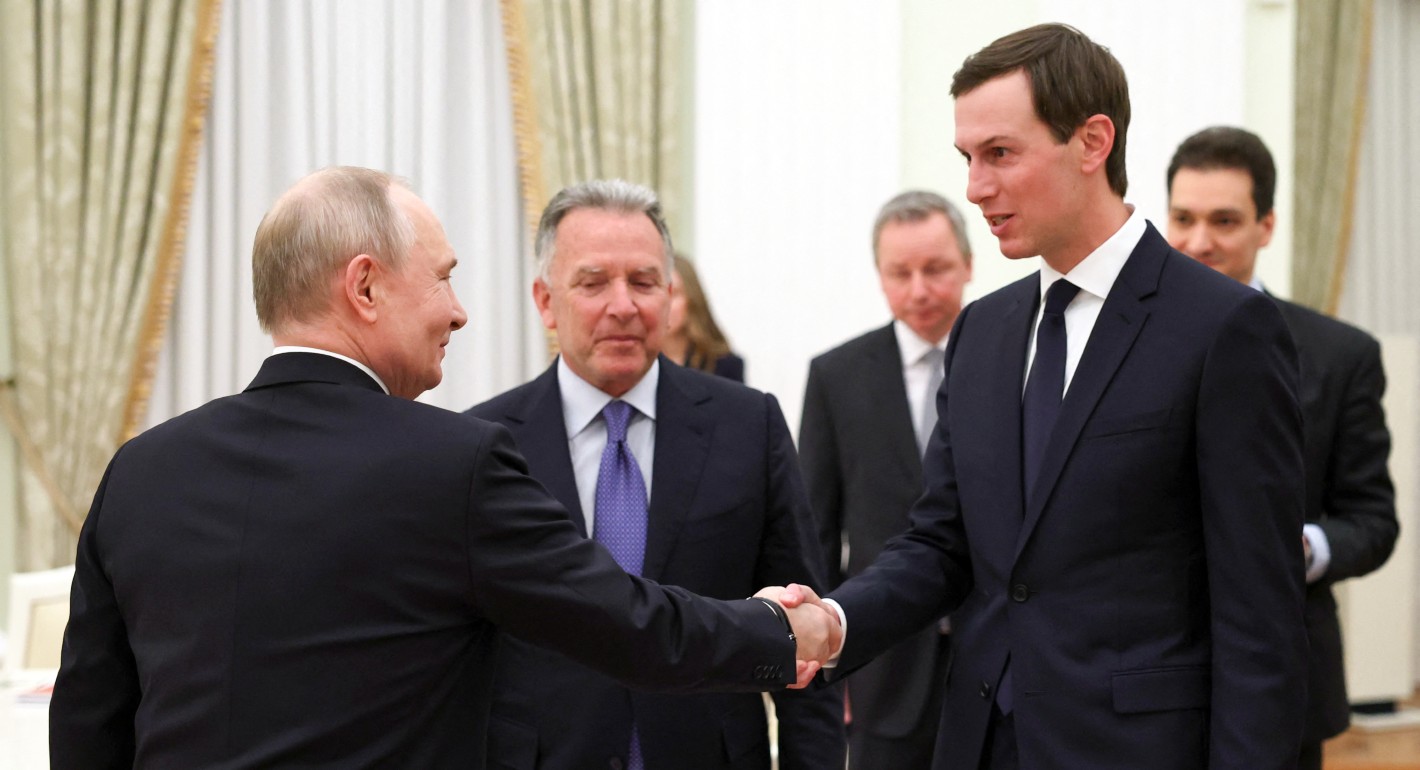Alper Coşkun
{
"authors": [
"Alper Coşkun"
],
"type": "commentary",
"blog": "Emissary",
"centerAffiliationAll": "dc",
"centers": [
"Carnegie Endowment for International Peace"
],
"collections": [
"European Politics",
"Türkiye and the World"
],
"englishNewsletterAll": "",
"nonEnglishNewsletterAll": "",
"primaryCenter": "Carnegie Endowment for International Peace",
"programAffiliation": "EP",
"programs": [
"Europe"
],
"projects": [],
"regions": [
"Türkiye",
"Israel",
"United States",
"Syria",
"Middle East"
],
"topics": [
"Security",
"Defense"
]
}
(Photo by Menahem Kahana/AFP via Getty Images)
The Middle East’s Other Escalating Rivalry
Despite past cooperation, relations between Israel and Türkiye have hit a new low. Syria will be a key test.
Amid the Middle East’s deepening turmoil, the growing rivalry between Israel and Türkiye is fueling tension in an already fragmented region. Despite a past legacy of cooperation, relations are now at an all-time low. Marked by antagonism, mutual suspicion, and zero-sum calculations, each side views the other’s regional ascent as a strategic challenge, if not a threat. Their competing regional ambitions are now most evident in Syria, where the United States has a chance to help reverse this trend before it boils over.
The situation used to be different. Relations rest on a deep history, going back to the late fifteenth century, when the Turkish homeland was a refuge for Jews fleeing persecution. In 1949, Türkiye recognized Israel’s statehood—the first Muslim majority country to do so. In the 1990s, Israeli-Turkish relations progressed further as the two countries advanced their national interests in tandem: They managed their differences, particularly over the Palestinian issue, while gradually building a partnership that extended into economic, military, and defense cooperation. In an era described as the “golden years,” they advanced free trade and collaborated extensively on military training, arms sales, technology transfers, and even intelligence sharing. Most importantly, they trusted each other.
Now, lack of trust has become a serious issue. Israel’s indiscriminate and increasingly assertive military actions since the Hamas terror attacks of October 7, 2023—including its destruction of Gaza, the humanitarian suffering it has brought upon the Palestinians, and its direct confrontation with Iran backed by the United States—have deepened Ankara’s unease about the regional order and Israel’s broader intentions. Türkiye views these developments, Israel’s growing ties with Greece and Cyprus in the Eastern Mediterranean, as well as its actions in Syria as part of a troubling pattern. Some in Türkiye even suggest that, after Israel’s conflict with Iran, their country could be next.
Israel’s concerns are equally acute. The Turkish government’s ties with Hamas and persistent condemnation of Israeli policies have unsettled Israeli policymakers. A key driver of Israel’s unease lies in Ankara’s regional influence following Syrian leader Bashar al-Assad’s overthrow at the end of 2024, and the potential emergence of new hostile proxies. These concerns have escalated to the point that a government-commissioned study has identified Türkiye as a strategic threat.
Currently, both Israeli and Turkish politicians are also leaning on a familiar tactic: portraying each other as adversaries to deflect attention from domestic challenges and consolidate their political bases. This not only deepens the rift but also gives it additional momentum.
In this atmosphere, policymakers on both sides grapple with the same question: how to blunt the perceived negative impacts of the other side’s regional policies and actions. Beneath this is a deeper question: Are Israel and Türkiye now doomed to rivalry, or is a more constructive path still possible?
For the United States, fraught relations between two key regional partners are troubling, and a problem it cannot take lightly. Growing tension between Israel and Türkiye would almost certainly demand some degree of American engagement, diverting attention from Washington’s more pressing challenges. If the United States wants to reduce its presence in the Middle East and have Syria emerge as a stable post-Assad state with regional actors taking the lead, it should be proactive in order to avoid the threat of a proxy struggle between Israel and Türkiye.
As a first step, Washington should make clear to both Israeli and Turkish leaders that their countries’ long-term security lies in cooperation, not rivalry, and that this is a firm U.S. expectation. President Donald Trump, with strong ties to both leaders, is arguably better positioned than any of his predecessors to deliver this message and help bridge the divide.
Syria is the right place to start. Israeli and Turkish priorities seem to diverge in the war-torn country, making it a powerful setting to contain misgivings and rebuild trust. Both these American allies have legitimate security concerns in the post-Assad trajectory of Syria, but they are busy pursuing different strategies. Türkiye favors a tightly centralized and well-functioning Syrian state that precludes security vacuums and denies sanctuary to disruptive actors, specifically the separatist Kurdistan Workers’ Party (PKK). Israel, by contrast, is wary of Türkiye’s outsized role in Syria and how Ankara might leverage its influence. This concern reinforces Israel’s preference for a fragmented, and perhaps even dysfunctional, Syrian state that lacks resilience and is easier to coerce—and, therefore, poses fewer strategic risks.
Enter the United States. Trump has signaled his openness to working with Türkiye in Syria and giving Syria’s new leadership a chance, manifested in his decision to lift sanctions. This aligns Washington more closely with Ankara’s position on strengthening Syria’s governance capacity and ability to sustain itself. It may also explain Trump’s urging of Israeli Prime Minister Benjamin Netanyahu during his previous visit to Washington in April to “be reasonable” about his disputes with Türkiye and its role in Syria. A recently emboldened Israel, however, is likely to be the more difficult party to persuade.
Türkiye’s stated vision of Syria—that the country should not pose a threat to its neighbors—offers a strong basis that Washington can build on when attempting to create a meeting of minds between its two regional partners. This framing not only addresses Turkish priorities but is also likely intended to reassure Israel, among other third parties.
The Syrian authorities have embraced this narrative. Moreover, they are acting on it, including by making a deliberate effort to avoid provoking Israel and remaining muted on its extensive military actions. Meanwhile, amid signs that Israel is recalibrating its relations with Syria (and Lebanon) after its war with Iran, reporting indicates that a nonaggression deal with Syria could be in the cards. Taken together, these developments suggest a positive scenario is possible in Syria—one that involves a reasonable degree of convergence between Israeli and Turkish interests. They also confirm that the United States can support and shape this opportunity.
A more stable, predictable, and sustainable Syria also could potentially lay the groundwork for a broader, more cooperative reordering of the Middle East—one in which the elusive goal of collective security might even become conceivable. Crucially, this scenario would also serve Washington’s strategic interest in fostering a less crisis-prone region that is also less demanding of American resources and attention.
Israel and Türkiye share a mutual interest in improving their relationship, and Syria is a useful starting point. This would not automatically resolve the deeper challenges, such as the personal animosity between their leaders or the enduring centrality of the Palestinian issue, but it would remove an unnecessary and potentially combustible issue from an already strained bilateral agenda. In addition, the United States could help steer the region toward a more constructive path by encouraging the two to lead by example and “change the dialogue” in the Middle East for the better. If such progress were achieved, a new chapter in Israeli-Turkish relations could become possible.
Emissary
The latest from Carnegie scholars on the world’s most pressing challenges, delivered to your inbox.
About the Author

Senior Fellow, Europe Program
Alper Coşkun is a senior fellow in the Europe Program and leads the Türkiye and the World Project at the Carnegie Endowment for International Peace in Washington, DC.
- Turkey Stakes its Claim in the Ukraine Peace ProcessCommentary
- The Latest Challenge to Türkiye’s Democracy: Crippling the Main Opposition PartyCommentary
Alper Coşkun
Recent Work
Carnegie does not take institutional positions on public policy issues; the views represented herein are those of the author(s) and do not necessarily reflect the views of Carnegie, its staff, or its trustees.
More Work from Emissary
- Is a Conflict-Ending Solution Even Possible in Ukraine?Commentary
On the fourth anniversary of Russia’s full-scale invasion, Carnegie experts discuss the war’s impacts and what might come next.
- +1
Eric Ciaramella, Aaron David Miller, Alexandra Prokopenko, …
- Indian Americans Still Lean Left. Just Not as Reliably.Commentary
New data from the 2026 Indian American Attitudes Survey show that Democratic support has not fully rebounded from 2020.
- +1
Sumitra Badrinathan, Devesh Kapur, Andy Robaina, …
- Trump’s State of the Union Was as Light on Foreign Policy as He Is on StrategyCommentary
The speech addressed Iran but said little about Ukraine, China, Gaza, or other global sources of tension.
Aaron David Miller
- How Middle Powers Are Responding to Trump’s Tariff ShiftsCommentary
Despite considerable challenges, the CPTPP countries and the EU recognize the need for collective action.
Barbara Weisel
- What If Trump Gets His Russia-Ukraine Deal?Commentary
It’s dangerous to dismiss Washington’s shambolic diplomacy out of hand.
Eric Ciaramella











